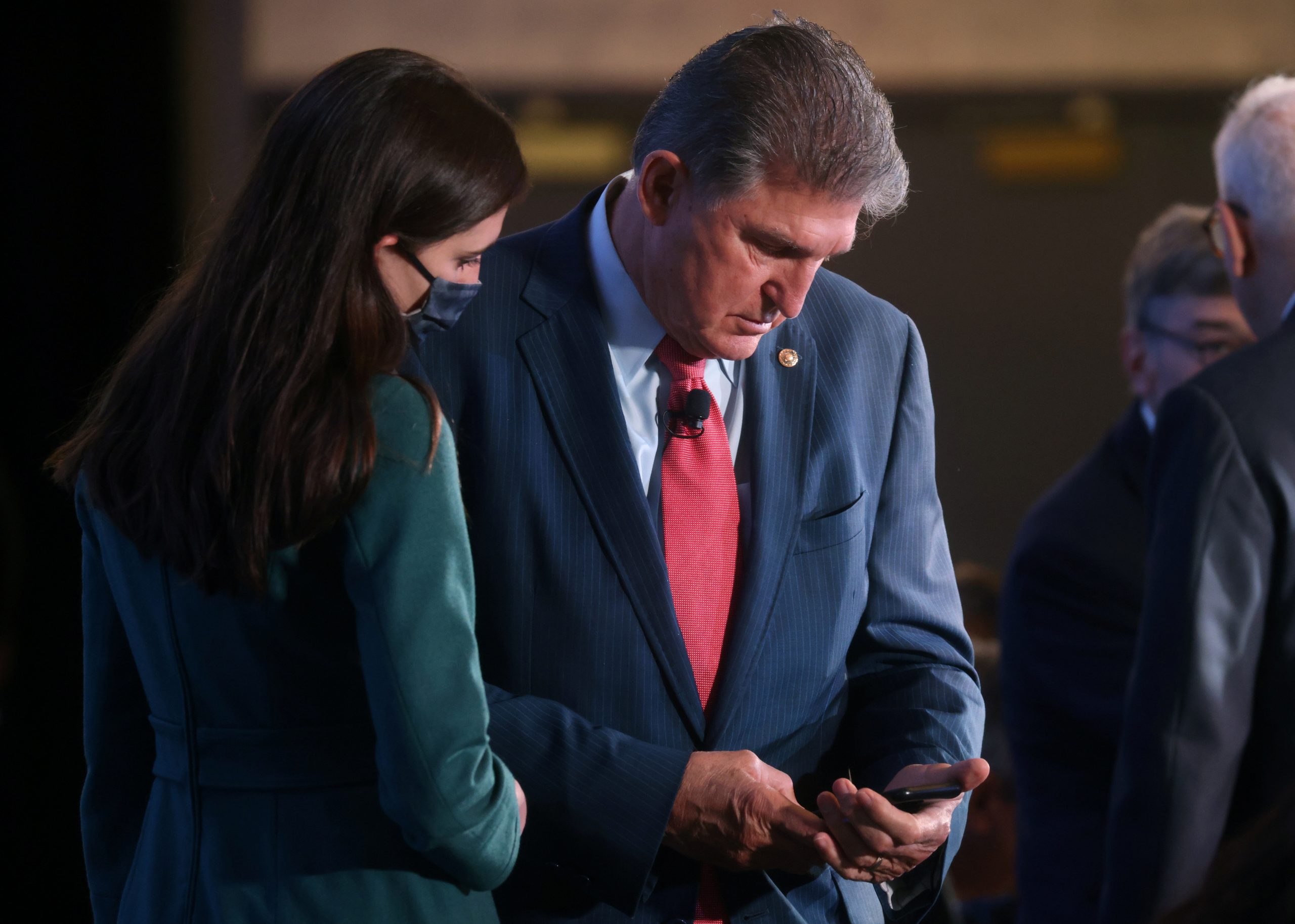
Willie R. Tubbs, FISM News
[elfsight_social_share_buttons id=”1″]
The cost of President Joe Biden’s “Build Back Better” plan continues to drop but taxes on the wealthy could still rise as the White House continues to negotiate for the support of moderate Sen. Joe Manchin.
According to a report from the Associated Press, Manchin (D-W.Va.) supports Biden’s plan to tax billionaires and larger corporations as a means of paying for what is shaping up to be a spending bill with between a $1.5 and $2 trillion price tag.
Prior to boarding Air Force One for a trip to New Jersey on Monday, Biden said a recent meeting with Manchin “went well” but did not commit to a timeline for a vote.
On Sunday, Biden hosted a breakfast attended by Manchin and Speaker of the House Nancy Pelosi (D-Calif.). According to a statement from the White House, the three “continued to make progress … and agreed to stay in close touch with each other and the wide range of members who have worked hard on these negotiations.”
Manchin and “Build Back Better” dominated the press gaggle hosted by Principal Deputy Press Secretary Karine Jean-Pierre while en route to Newark, New Jersey. “We’re working every day,” Jean-Pierre said. “There’s progress, as the Speaker said yesterday and as the President said today. So, we’re going to keep going.”
When asked if the president and Manchin had reached an agreement on a top-line cost of bill, Jean-Pierre replied, “There is agreement that we need to move forward in doing more … to address the climate crisis, make healthcare more accessible and affordable, and give more working families breathing room who are dealing with crushing costs of healthcare, eldercare, and early childhood education.
“We are at the point of negotiating, as Jen likes to say, the “nitty gritty” of the details — that’s important — but we have a strong base of agreement. So, we’re continuing to negotiate. We’re almost there. “
The message from the Biden administration was one of progress being made but stewarding the bill to completion has proven costly, both in practice and in optics, to the president and the Democratic party as a whole.
On Tuesday, The Hill outlined five sticking points that were preventing the passage of the spending bill: Medicare and Medicaid expansion, paid family leave, taxes on the wealthy and corporations, the Child Tax Credit, and Climate Change. Each of these sticking points represented a major bullet point in Biden’s campaign promises, and all have been either reduced or eliminated in full in recent weeks.
To lower the cost of what was initially a $3.5 trillion plan, Democrats have removed provisions for free community college and clean energy standards. In addition, programs that would have permanently expanded Medicaid and the Child Tax Credit will now expire in one or two years.
Manchin spoke out on Monday against the expansion of Medicare, citing an August report from the Medicare board of trustees that Medicare hospital insurance funding could dry up by 2026:
My big concern right now is the 2026 deadline [for] Medicare insolvency and if no one’s concerned about that, I’ve got people — that’s a lifeline. Medicare and Social Security is a lifeline for people back in West Virginia, most people around the country… You’ve got to stabilize that first before you look at basically expansion. So if we’re not being fiscally responsible, that’s a concern.
According to The Hill, Bernie Sanders (I-Vt.) however fired back at Manchin seeming to be more concerned with the popularity of the bill than whether or not it could be funded:
The expansion of Medicare to cover dental, hearing and vision is one of the most popular and important provisions in the entire reconciliation bill. It’s what the American people want. It’s not coming out.
Last week, the administration also jettisoned a plan to increase the nation’s corporate tax rate from 21 to 28 percent in an effort to gain the support of Manchin and fellow moderate Kyrsten Sinema (D-Ariz.).
According to The Hill, the provision in the bill that would have given 12 weeks of paid family leave to all Americans, which would have matched the benefit offered to federal employees, to be trimmed to four weeks.
Of late, the president has traveled the Northeast offering numerous stump speeches in support of his bill. On Monday, while in Kearny, New Jersey, Biden continued to push his plan, but made no mention of a steady reduction in cost or the benefits his plan has lost.
Getting Manchin’s support is a necessary first step for the Biden administration, which needs all 50 Democratic senators’ support in order to have a chance of passing the legislation via reconciliation in the equally split Senate.
